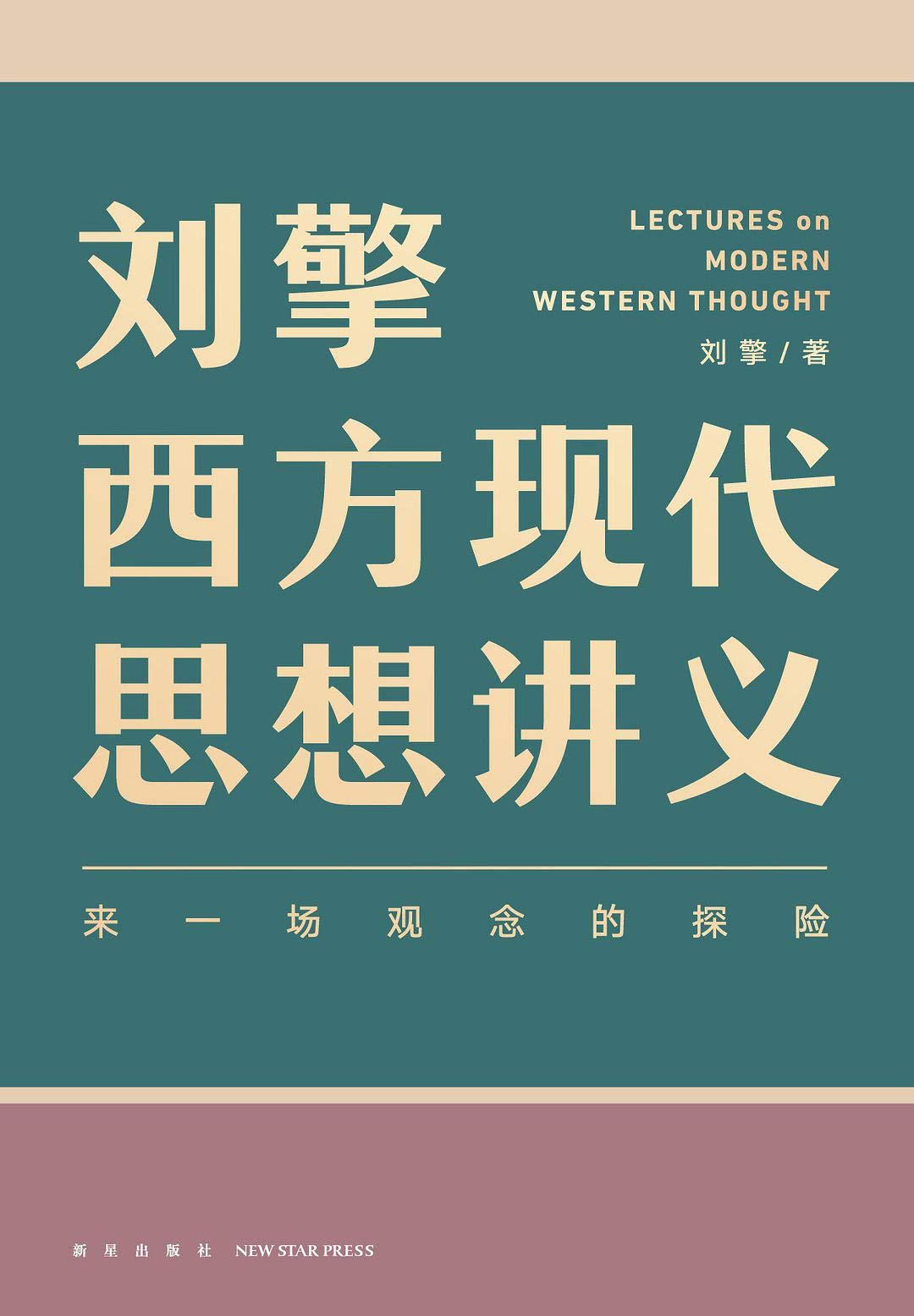WULOLIFE
《刘擎西方现代思想讲义》 作者: 刘擎 出版社: 新星出版社
《刘擎西方现代思想讲义》 作者: 刘擎 出版社: 新星出版社
Sale
Sold out
Regular price
€26,00 EUR
Regular price
Sale price
€26,00 EUR
Unit price
per
Shipping calculated at checkout.
Couldn't load pickup availability
Description
内容简介 · · · · · ·
人生的意义,人们向往的自由和公平的价值,人类文明的复杂冲突与未来趋势…出的头脑。他们尽最大努力做出阐释,为后人提供了宝贵的思想标识。在这部讲义里,刘擎介绍了现代视域下的19位思想大家,广泛而系统地讨消费主义对人的异化,财富分配的公平正义和全球化等议题。思想不惑,精神明亮。你将在这19位大家你还会在思想大厦之上,直面个人生活和社会公共领域的诸多难题,收获审慎而真诚的回答。
作者简介 · · · · · ·
刘擎
著名学者。华东师范大学教授。研究方向包括政治哲学、西方思想史、现当代西方思潮与国际政治问题。代表著作《纷争的年代》《悬而未决的时刻》等。自2003年《西方思想年度述评》,是许多学者每年的必读文章。
目录 · · · · · ·
前言打开一本书,开始一次思想探索之旅/001
导论
01思想有什么现实意义/008
02什么是现代和现代性/014
03古今之变:古代和现代到底哪里不一样/019
第一章现代思想的成年
04路标:韦伯与现代思想的成年/030
05韦伯I:为什么说“祛魅”是人类的梦醒时分/036
06韦伯II:现代的“诸神之争”是怎么发生的/042
07韦伯III:工具理性会带来什么问题/048
08韦伯IV:“现代的铁笼”是怎么铸就的/054
第二章现代人的精神危机
09路标:现代人的“精神危机”/060
10尼采I:“上帝死了”究竟是什么意思/066
11尼采II:“超人”究竟是什么人/072
12尼采III:我们还有共同的真相吗/078
13弗洛伊德I:为什么说他宣告了“理性人”的死亡/084
14弗洛伊德II:精神分析学说真的是科学吗/090
15萨特I:为什么如此特立独行/095
16萨特II:为什么可以从“虚无”推出“自由”/100
17萨特III:为什么自由是一种沉重的负担/106
第三章20世纪的教训
18路标:20世纪的灾难为什么不可思议/114
19th page:大屠杀是因为疯狂吗/120
20阿伦特I:大屠杀真的是“平庸之恶”吗/126
21阿伦特II:怎么才能不变成坏人/132
22波普尔I:科学是怎么被重新定义的/138
23波普尔II:为什么人类不能创造出完美社会/144
24 Years I:没有设计规划,能够形成秩序吗/150
25哈耶克II:“理性的自负”为什么很危险/155
26伯林I:是“狐狸”还是“刺猬”/161
27伯林II:价值一元论错在了哪里/166
28伯林III:你想要的是哪种“自由”/173
29马尔库塞I:“舒适的”不自由是怎么一回事/179
30马尔库塞II:我们是“单面人”吗/185
31马尔库塞III:“实质性的变革”是有可能的吗/191
第四章自由主义及其批判者
32路标:自由主义为什么会不断遭到挑战/198
33罗尔斯:怎么才能实现社会正义/206
34诺齐克:最自由的国家是什么样子/213
35德沃金:什么样的平等才合理/221
36桑德尔:当代人需要为历史事件负责吗/227
37沃尔泽:“原子化的个人”是怎么诞生的/234
38泰勒:如何“成为你自己”/242
39哈贝马斯:为什么“交谈”是一件非比寻常的事/250
尾声后冷战时代的争论
40路标:后冷战时代的世界秩序/260
41福山:“历史终结论”究竟在说什么/266
42亨廷顿:“文明的冲突”是不可避免的吗/275
43结语:现在是新的历史转折点吗/282
补充讲解/289
答学友问/317
推荐阅读书单/349
后记:感想与致谢/350
参考文献/356
人名索引/365
导论
01思想有什么现实意义/008
02什么是现代和现代性/014
03古今之变:古代和现代到底哪里不一样/019
第一章现代思想的成年
04路标:韦伯与现代思想的成年/030
05韦伯I:为什么说“祛魅”是人类的梦醒时分/036
06韦伯II:现代的“诸神之争”是怎么发生的/042
07韦伯III:工具理性会带来什么问题/048
08韦伯IV:“现代的铁笼”是怎么铸就的/054
第二章现代人的精神危机
09路标:现代人的“精神危机”/060
10尼采I:“上帝死了”究竟是什么意思/066
11尼采II:“超人”究竟是什么人/072
12尼采III:我们还有共同的真相吗/078
13弗洛伊德I:为什么说他宣告了“理性人”的死亡/084
14弗洛伊德II:精神分析学说真的是科学吗/090
15萨特I:为什么如此特立独行/095
16萨特II:为什么可以从“虚无”推出“自由”/100
17萨特III:为什么自由是一种沉重的负担/106
第三章20世纪的教训
18路标:20世纪的灾难为什么不可思议/114
19th page:大屠杀是因为疯狂吗/120
20阿伦特I:大屠杀真的是“平庸之恶”吗/126
21阿伦特II:怎么才能不变成坏人/132
22波普尔I:科学是怎么被重新定义的/138
23波普尔II:为什么人类不能创造出完美社会/144
24 Years I:没有设计规划,能够形成秩序吗/150
25哈耶克II:“理性的自负”为什么很危险/155
26伯林I:是“狐狸”还是“刺猬”/161
27伯林II:价值一元论错在了哪里/166
28伯林III:你想要的是哪种“自由”/173
29马尔库塞I:“舒适的”不自由是怎么一回事/179
30马尔库塞II:我们是“单面人”吗/185
31马尔库塞III:“实质性的变革”是有可能的吗/191
第四章自由主义及其批判者
32路标:自由主义为什么会不断遭到挑战/198
33罗尔斯:怎么才能实现社会正义/206
34诺齐克:最自由的国家是什么样子/213
35德沃金:什么样的平等才合理/221
36桑德尔:当代人需要为历史事件负责吗/227
37沃尔泽:“原子化的个人”是怎么诞生的/234
38泰勒:如何“成为你自己”/242
39哈贝马斯:为什么“交谈”是一件非比寻常的事/250
尾声后冷战时代的争论
40路标:后冷战时代的世界秩序/260
41福山:“历史终结论”究竟在说什么/266
42亨廷顿:“文明的冲突”是不可避免的吗/275
43结语:现在是新的历史转折点吗/282
补充讲解/289
答学友问/317
推荐阅读书单/349
后记:感想与致谢/350
参考文献/356
人名索引/365
